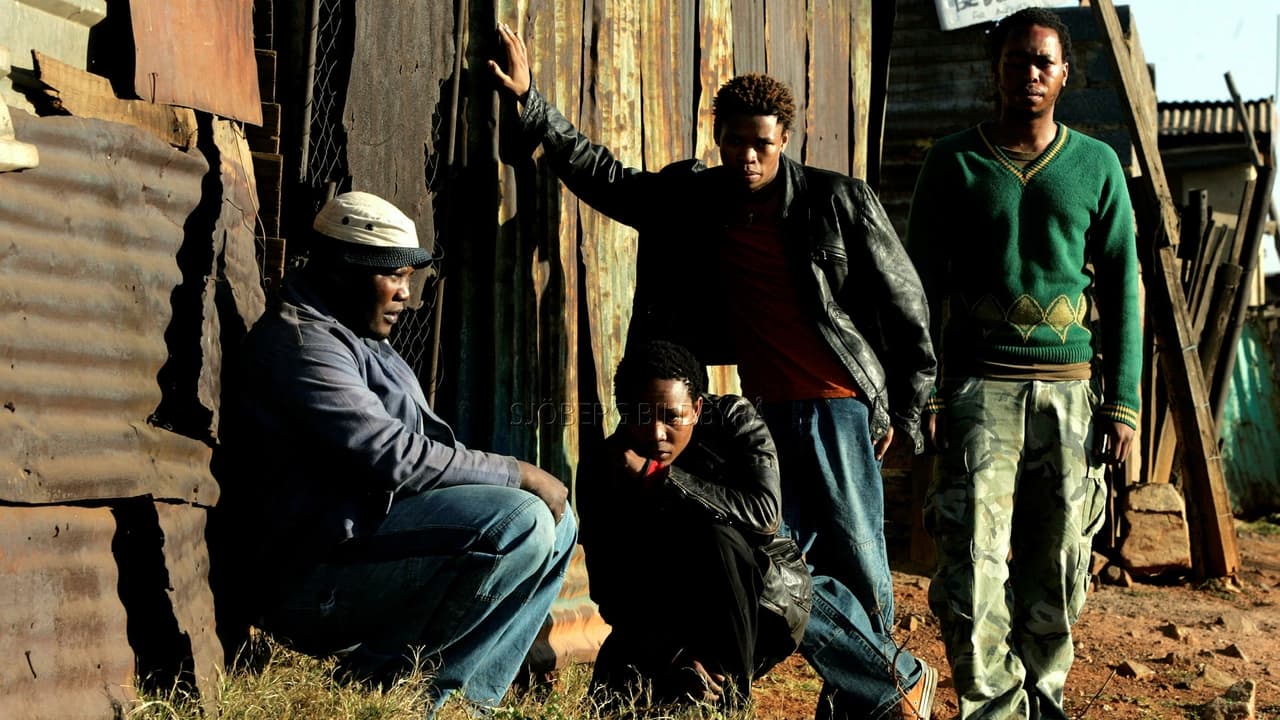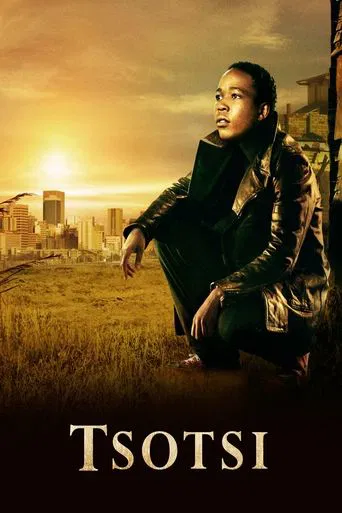Beystiman
It's fun, it's light, [but] it has a hard time when its tries to get heavy.
Dynamixor
The performances transcend the film's tropes, grounding it in characters that feel more complete than this subgenre often produces.
ChanFamous
I wanted to like it more than I actually did... But much of the humor totally escaped me and I walked out only mildly impressed.
Ezmae Chang
This is a small, humorous movie in some ways, but it has a huge heart. What a nice experience.
rhysseddon-88973
More like a channel 5 Sunday afternoon film if your bored, still a decent watch but i wouldn't pay top dollar to see it, worth it if you borrow it from a mate, or see it on the telly on channel 5 on a Sunday afternoon if your bored kinda just went over that but i need filler for the review
Gray_Balloon_Bob
The film begins with a game of dice, not just illustrating the usual vices some wayward and deprived youths might get up to in their spare time, but I think to tell us immediately how our trio of small-time gangsters are gambling with their fates. (As a friend pointed out, the lighting in this room, which the film frequently returns to, is marvellous, capturing the squalor intimately but also the illusion of beauty and mystery through the open window.) This foursome regularly go out and target people, based on their estimated affluence, as all logical thieves do, and rob them. One of them, Butcher, whose name clues us in on his tendencies, cannot correctly count the simple combination the dice has given him. He is an idiot, without any foresight, ignorant of the consequences. Significantly, Tsotsi, our titular character (Tsotsi meaning 'thug') doesn't participate in this game. He is the leader, their guide, he gambles with his life, but isn't aware of the poor dice he is about to roll. I suppose it is a testament to the film that despite all its conventions it is able to induce poignancy and tender reflection out of the smallest moments. I've been looking at Tsotsi closely alongside 'City of God' and 'La Haine', as part of my film course and this one is probably the weakest of the three. The others have a greater sense of place and character. They have their faults too, particularly notable is what I felt to be a level of uncomfortable glamorisation (however unintentional) in the first half of City of God, but otherwise these films explore more the individuality of their respective environments and the culture there. Tsotsi is more universal, a story of humanity in conflict with self- preservation, and ultimately the need for love, rather than an exploration of its world and the how's and why's of the people found in it. We have the simple premise of a person with a capacity for violence yet with a struggling compassion lost in an unforgiving world, haunted by his childhood and given the opportunity in life to allow his humanity to grow and find some modicum of redemption. It does feel perhaps a little pre-packaged, with certain moments designed to hit you in the right places and leave you nodding your head in approval. Dogs and Babies (or children in general) are two elements which are often a shortcut to the emotions, particularly for me at least as they evoke a more immediate response without the filmmaker necessarily having to work for it, which is of course a lazy and tired way of involving us in the film. Thankfully the baby which Tsotsi inadvertently steals is not used in this method, but is of course central to the film and the protagonist and is the catalyst for much change, and all the pain that comes with that. There's a real humanity here, and it's hard not to feel involved in Tsotsi's plight, and to ultimately care for all the people who life has forced into living in this world. Credit should largely be given to Tsotsi himself, Presley Chweneyagae, who as well as possessing an impressive name has a profound ability to express himself physically. Tsotsi is mostly without words, not just because he is the more pensive character but because this world hasn't afforded him any, and so we rely on his face to understand the motions he is going through, which are intimately conveyed and range from self-assured intimidation and violence through to desperation and confusion and finally unbridled compassion; the final scene in which (circumstances not revealed here) he is holding the baby, we are able to see the lost child who was never properly nurtured, and the broken man who has finally realised his responsibility. South African culture isn't represented often to the mainstream, and so the world here, and the voices of these people, and the music - although this sometimes has the habit of introducing those harmonising choirs you often hear in emotionally climatic moments that are attempting sensitivity or catharsis but are instead ingratiating and annoying, but in this case the foreign, 'tribal' feel works and the film in the end at least earns the usage of this sound - and their plight is welcome to the screen, and I'm sure Tsotsi can be a good starting place for further exploration. Despite its adherence to conventions and its relatively limited exploration of this world, it has a gift of being able to evoke a striking poignancy out of the small things. It takes all the plot and characters turns that it has accumulated and occasionally instead of going straight to the emotional check-list it stops and lets the drama unfold itself. Take the moment in which Tsotsi gathers his criminal friends/accomplices and goes back to the house of the baby whose parents he robbed. While the other two guys are pillaging the house, Tsotsi goes to the baby's nursery and observes quietly and wondrously. He looks at the sweeping safari wallpaper, the cot that sits in the corner, and sees these parents providing for their child, an ordinary and loving environment, it's nurturing, it's protective, and as well as what he never had, it's also the realisation that baby doesn't belong to him and that despite all the care and love that he is fully aware is capable of giving, he still can't give the baby what it needs. That hurts. And that is Tsotsi at its best.
otieno-nimesota
This film describes problems that the Republic of South Africa has from the view of the main character, Tsotsi. South Africa has many serious problems like high crime rate, HIV, and high unemployment rate. Tsotsi is one of the people who suffer from such problems, and he needs to commit crimes to live. He takes up arms, and attacks people by force.However, one day he finds something stronger than force. He cannot wound the baby and the woman who cares his baby. Tsotsi had not been loved, but he finds he wants to love somebody. He regrets what he did, and finally he tries to make up for his misdeed with his all possible efforts. His look changes dramatically after he found the baby. At the beginning of the story, Tsotsi was just a delinquent boy, but he changes a man who can love somebody. All of actors, especially Presley Chweneyagae who acts Tsotsi, put on splendid performance. They and awesome story make us be moved.
jrmontalvo3
Tsotsi directed by Gavin Hood was a story based in Africa, showing a different side that many people do not realize that a lot of that country has many issues that are addressed throughout this movie. In Tsotsi we start off following Tsotsi, who is a young adult probably around the age of sixteen or eighteen, and his buddies Aap, Boston, and Butcher. These four partners commit crimes to makes money called "jobs", the first job we as the viewers get to witness is when Tsotsi and the three friends follow a high roller man into a subway and rob him, and while robbing him they kill this innocent man. Later on through the story Tsotsi is on his own, alone and kind of nervous, he sees a lady pull up in a nice house and is locked out of her gate, so while she isn't paying attention Tsotsi steals her car as she runs toward him he shoots her. Little did he know that a baby was in that back seat, at first Tsotsi was about to leave the baby, but decided to take him to his house. As the movie progress you see that Tsotsi grows into a different young man, with the responsibilities of the child he has taken, has shaped him in a way that helps him understand life and the meaning to it. However, Tsotsi has to make the biggest decision of his life, which is to take the baby back to its rightful family. In doing this he decides to take the baby to his mother and father, by turning himself in, but as you witness something new in Tsotsi as the parents ask for the baby it is hard for him to let go, because how attached he had become to the baby or "his new life".

